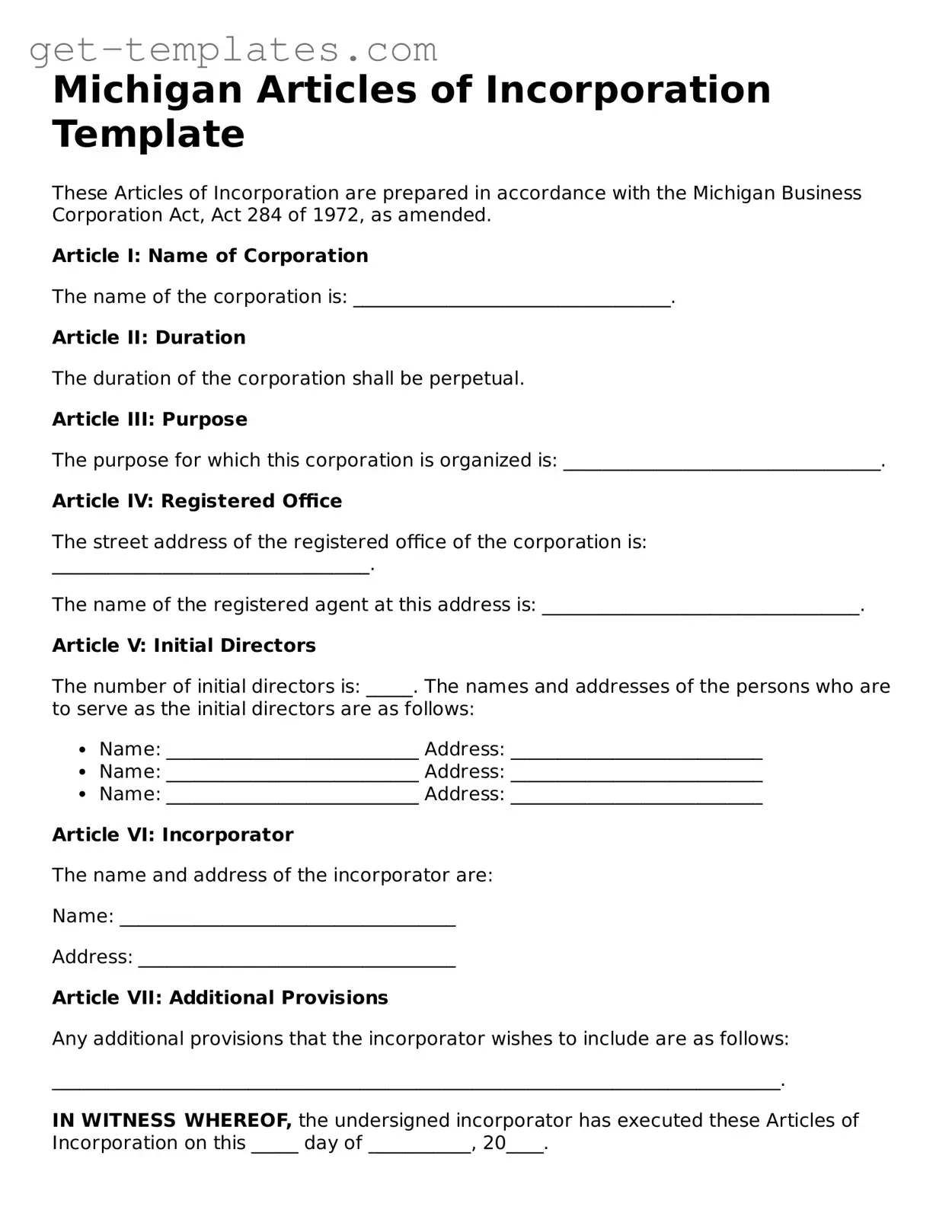Attorney-Approved Articles of Incorporation Document for Michigan
The Michigan Articles of Incorporation form is a legal document required to establish a corporation in the state of Michigan. This form outlines essential information about the corporation, including its name, purpose, and structure. Proper completion and filing of this form are crucial for anyone looking to create a business entity in Michigan.
Get Document Online

Attorney-Approved Articles of Incorporation Document for Michigan
Get Document Online
You’re halfway through — finish the form
Finish Articles of Incorporation online — edit, save, download made easy.
Get Document Online
or
⇓ PDF Form
